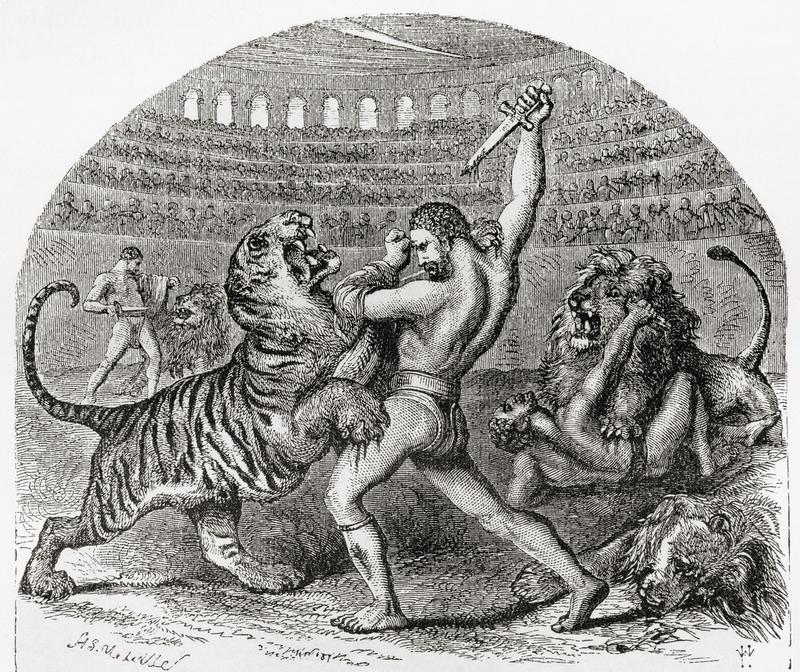Gladiators: Who Were They?
By | January 29, 2019

Who Were The Gladiators?
The definition of Gladiator is a swordsman, an armed combatant who entertained audiences in the Roman Empire in violent fights with other gladiators, wild animals, and criminals. But how did one become a gladiator? And why? Usually, gladiators were slaves who had been acquired in war. Sometimes they were convicted criminals who had no other option. Some of them were upper-class men who had squandered away their fortune and had no other means of earning money. Even emperors dabbled in playing gladiator. No matter how they ended up a gladiator, in the times of the Roman Empire, they were considered doomed men with no dignity.

Gladiator School
Training gladiators was serious business. They were training in special schools called 'ludi'. They practiced in coliseums, chariot racing stadiums, anywhere the ground was sandy. They practiced on the sandy ground so the sand would absorb the blood. Gladiators generally fought each other and rarely fought lions, as we have seen in movies. There were different categories of gladiators. Some fought on horseback, others in pairs. The types of weapons and armor would be another determining factor. Some were even named for the location they came from. The goal of the school was to get the trainees into top physical condition. They used fake weapons to practice with. They were also tattooed, so if they did try to leave, they could be easily identified.

A Day In The Life
The gladiators began training at dawn. They slept in locked cells, so as soon as they were let out they went to eat breakfast. New trainees were not allowed to speak and were taken to eat in shackles. They were watched and guarded well, as they were commodities. They were fed very well to keep them in top shape. Their diet was high in carbohydrates and included fish, bread, whole grains, beans, cheeses, and eggs. They drank only water or water with bone ashes in it. The bone ashes would increase their calcium levels. Along with grueling physical training, they were also expected to keep up their personal hygiene. They received massages and were able to bathe frequently. The daily life of gladiators was actually better than that of the average Roman.

The ‘Games’
The games were very organized, not free-for-alls. It was expensive to train a gladiator so death was not the outcome wanted. There were two referees overseeing the combat. If one of the gladiators became injured, the fight would stop and the referee would decide if the combat could continue. The losing gladiator could raise their thumb up to try and get mercy from the audience. If mercy was not given, then the losing gladiator would kneel and be executed by sword. If they could not kneel, then they would be stabbed through the heart.

The Games Were Entertainment
The gladiator games were the big entertainment of the times. Gladiators were dressed in costumes to look exotic and interesting. They were expected to draw out the combat, not go in quick and dirty. They wanted to keep the audience engaged. The spectators went to these games with the same attitude we now attend a football or soccer game. They had their favorites they cheered for and placed bets on the gladiators they liked. There was competition for tickets to the games and even jockeying for the better seats. One’s social status would determine where you could sit.

The Gladiators Who Were Successful
Victorious gladiators received adoration, money, and donations from the spectators. The biggest prize was winning their freedom. If they had been in service for a long time, they could be awarded a ‘rudis,’ a wooden sword used in training or by the referees of the games. There were really only two choices for a gladiator, death or winning freedom.

